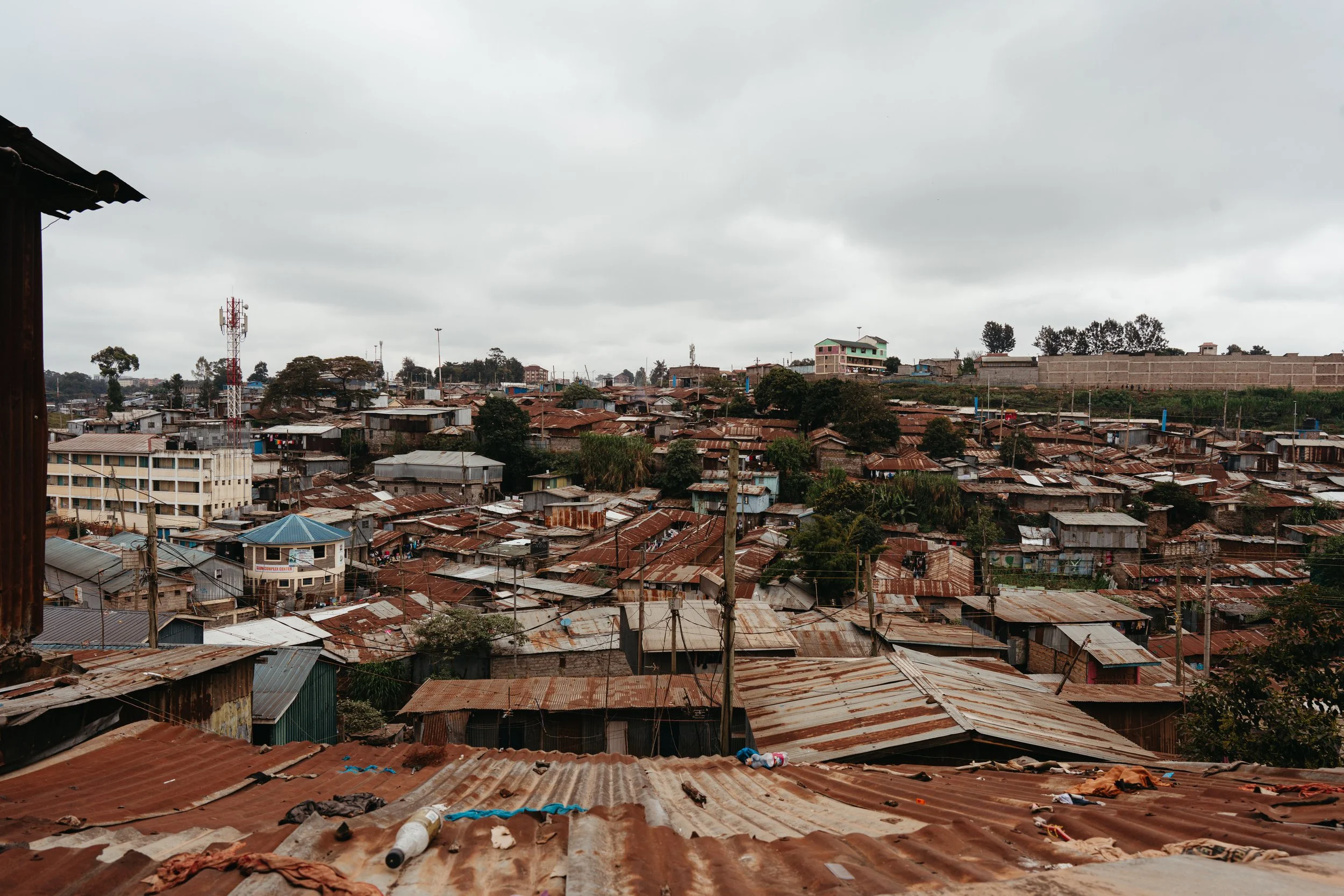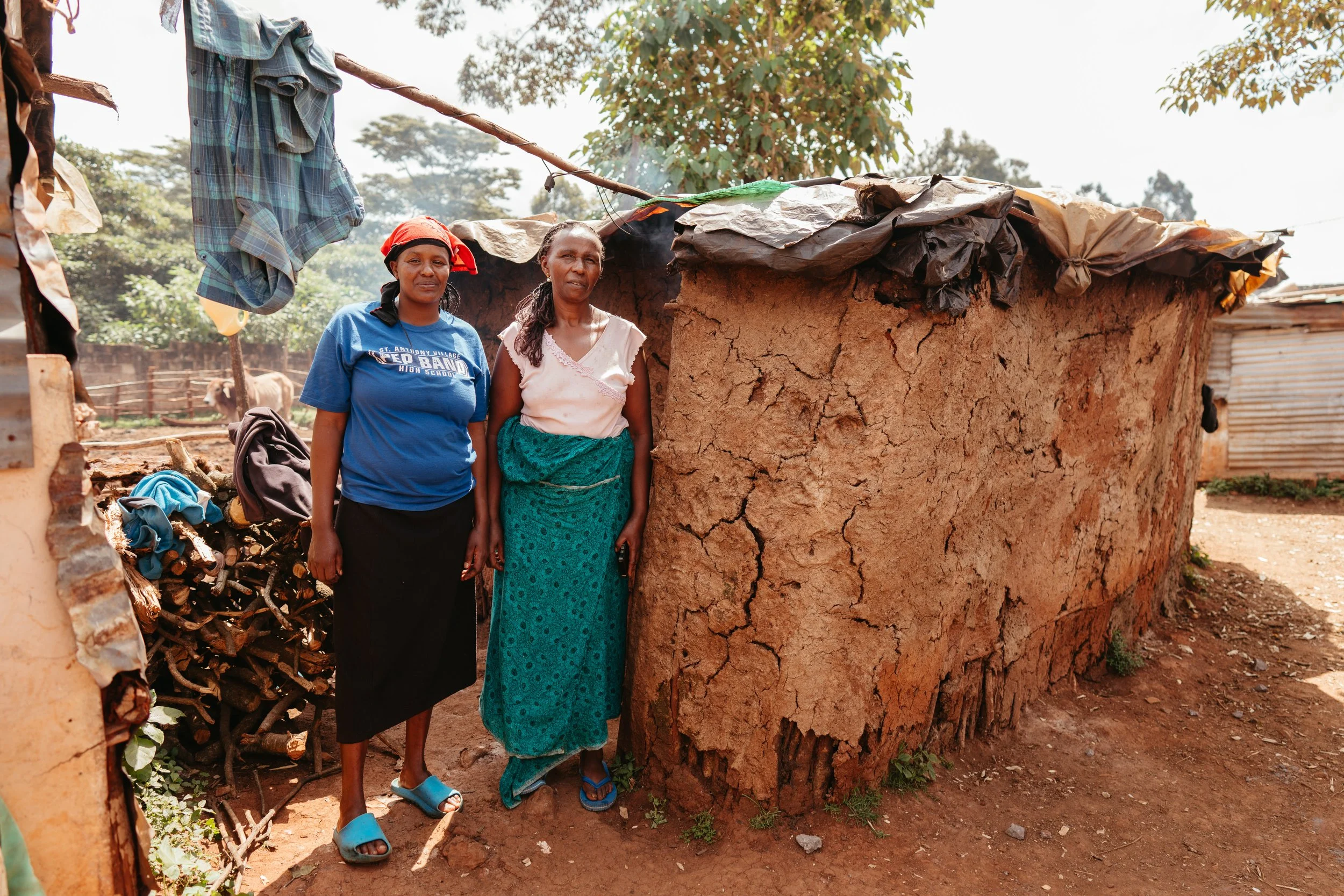LIFE IN KIBERA
Kibera, on the edge of Nairobi, is the largest informal settlement in Africa—home to over 1.5 million people. It’s a place of overwhelming hardship but also one of deep resilience and community spirit.
According to the World Health Organization, during the COVID-19 lockdowns, with no access to food, clean water, or healthcare, the average life expectancy in Kibera dropped to just 30 years.
In daily life, clean water is scarce. Children often walk long distances carrying heavy containers to water collection points. Most families live in cramped 4x4 metre homes made of mud, tin, and sticks. There’s no running water, and more than 50 homes might share a single pit latrine. During heavy rains, open sewage floods homes, spreading diseases like cholera and typhoid. Garbage is never collected, and “flying toilets” (plastic bags used as toilets and thrown outside) are common due to safety risks at night.
Despite paying rent, residents have no legal tenancy rights. When a new government road cut through Kibera, many were displaced. Some built makeshift shelters on top of others’ homes, creating dangerously unstable structures.
Employment is scarce, and most people survive on less than $1 USD a day. There are no government hospitals or clinics. Many residents lack birth certificates and can’t be easily located in the maze of unmarked alleyways.
The social challenges are just as alarming. Drug and alcohol abuse (including the use of changaa, a homemade 50% proof alcohol), violence, and rape are widespread. Gender inequality is extreme—33% of women trade sex for food, some as young as six. Teenage pregnancy is common, especially among girls who are out of school.
Yet in the face of unimaginable hardship, Kibera is full of life. It’s alive with colour, culture, and the spirit of entrepreneurship. Parents dream of a better future for their children—just like families everywhere.
Through Women for Women in Africa (WFWIA) and our local partner Wanawake kwa Wanawake (WkW), we’re helping to turn those dreams into reality by providing education, skills training, and support systems that lead to real and lasting change.
Education is the greatest equaliser. It provides opportunity, protection, and hope. Sponsorship through WFWIA enables families to lift themselves out of poverty—empowering girls and women to choose a different path.
As the African philosophy of Ubuntu teaches us:
"I am because we are."
We belong to each other—and together, we can make a difference.


